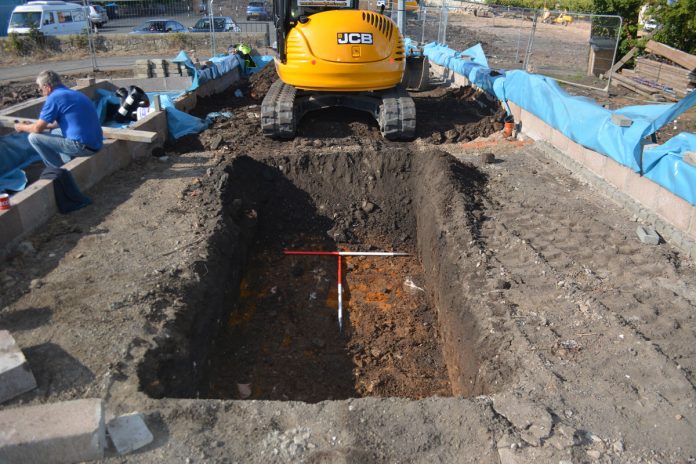The Housing & Planning Bill received Royal Assent yesterday and marks its passage into law. Chartered Institute for Archaeologists (CIfA) has been engaged with the Government over various issues of concern for the archaeological sector. The following is the briefing on how this act may affect how archaeology is dealt with.
by Rob Lennox (Source Link)
What’s in the Act?
The Housing and Planning Act What are the unintended consequences for archaeology?
The Housing and Planning Act is a major piece of Government legislation which is at the heart of the Government’s planning reform agenda in England. Measures in the Act include various proposals relating to the provision of Starter Homes, regulations to affect social housing, and plans to fund extensions to Right to Buy schemes through funds obtained by selling off high value council-owned properties.
However, the main measure which concerns the archaeology sector is the creation of a duty for local authorities to hold a register of brownfield land with the purpose of unlocking sites for housing and the automatic granting of permission in principle (PiP) for sites included in such registers, as well as for land allocated in other ‘qualifying documents’ (which, it is intended, will include Local and Neighbourhood Plans).
What does the Government say?
The Act includes the latest in a string of measures designed to stimulate housebuilding and improve productivity through development. However, at the same time, the government remains ostensibly committed to the principles of heritage protection under the National Planning Policy Framework (NPPF)1, and desires to see those protections retained in the proposed changes to planning law and policy. The Chancellor of the Exchequer, George Osborne, recent wrote2:
The Government is committed both to meeting our housing need and protecting the historic environment. The Government is very clear that there is a need to protect our heritage assets.
The NPPF paragraph 128 states
Where a site on which development is proposed includes or has the potential to include heritage assets with archaeological interest, local planning authorities should require developers to submit an appropriate desk-based assessment and, where necessary, a field evaluation.
Current system
Presently, sites undergo pre-determination assessment and evaluation to ascertain whether sites include, or have the potential to include, heritage assets of archaeological interest.
They may in some cases constrain development, or may require investigation, dissemination and archiving. Such requirements are normally secured by means of planning conditions or obligations.
New provisions
The Housing and Planning Act makes provision for permission in principle (PiP) for
- applications for housing on smaller sites
- development orders for sites in qualifying documents (local plans, neighbourhood plans and sites on the Brownfield Register)
The problems are
- sites are routinely allocated in local and neighbourhood plans in the absence of archaeological assessment and evaluation
- the mechanism expected to identify sites for inclusion on brownfield registers – Strategic Housing Land Availability Assessment – does not routinely involve archaeological assessment and evaluation
- some sites identified and allocated in these documents will be unsustainable, causing significant harm to nationally-important heritage assets with archaeological interest
- some sites will be unviable by reason of the archaeological work required
- there is no obvious mechanism for attaching conditions to PiP
The dangers of allowing permission to be granted without appropriate archaeological assessment and evaluation were brought home by the case of the Rose Theatre which cost the Government dear (in terms of compensation to allow developers to find a design solution and in reputation) and played a large part in the introduction of PPG 16 in England.

Problems with proposed Government solutions
The Bill consultation recognised that sites can have particular constraints and sensitivities (paragraph 2.26) which produce a situation where a decision may be taken to allocate a site, but not grant permission in principle (paragraph 2.28). However, the expectation, stated often in the consultation (see, for example, paragraph 2.8(b)), that PiP will be granted ‘in most cases’ for sites identified in qualifying documents suggests that Government has not fully grasped the implications of the proposal for archaeology, and of the proposed presumption in favour of the development of brownfield land.
The response of Baroness Williams of Trafford on 22 March3 to the expression of such concerns in the House of Lords only increases our concerns;
3 House of Lords debate: Housing & Planning Bill – http://goo.gl/Zx6XdC
“I hope that I have set out the rigorous process of consideration and engagement that will be followed to grant PIP and in that context, the scenario when no scheme can be given technical details consent, is an extremely rare one. But if it does occur,
in those rare circumstances we have made provision for PIP granted on application to be revoked or modified.”
So far as archaeology is concerned;
- the process of consideration and engagement envisaged is not rigorous
- the scenario when no scheme can be given technical details consent is unlikely to be an extremely rare one
- the expedient of revoking or modifying permission in principle is unrealistic: the planning authority would be liable for compensation of Rose Theatre proportions
Effective solutions
If Government wishes to avoid re-visiting ‘in principle decisions … at multiple points in the process’ (paragraph 2.3), it must fully recognise and address the corollary: all necessary information which may affect the principle of development or its viability must be assessed before permission in principle is granted. For archaeology, this should be specifically recognised in legislation and stated in policy.
We recognise that this has the potential, for instance, to encumber and slow down plan- making (thereby undermining one of the other aims of Government in this consultation and cutting across the recent conclusions of the Local Plan Review Group which wished to see plan-making speeded up). Therefore, if all necessary information is not available (including that necessary to assess the effects of development upon the historic environment) permission in principle cannot be granted and this must be made clear.
This clarity is not present. Authorities are expected to take a positive, proactive approach when including sites in their registers, rejecting potential sites only if they can demonstrate that there is no realistic prospect of sites being suitable for new housing (paragraphs 3.5 and
3.16 of the consultation document).
This is a materially different approach from one that seeks to establish that there is no in- principle objection to development.
What is CIfA doing, and what happens next?
CIfA has been working with colleagues from the Council for British Archaeology (CBA) and Association of Local Government Archaeological Officers (ALGAO) throughout the Bill process to brief MPs and Peers in order to help develop solutions to these issues. We now need to identify ways of working within the Act that might reduce the risks, and the apparent new statutory burden on local authorities to fund assessment and field evaluation previously paid for by planning applicants. This will include raising issues with local authorities engaged in piloting Brownfield Registers, collaborating on guidance and developing robust evidence of problems for housing development and archaeology. We will also advocate amending clauses in the new planning legislation to be proposed in the next Parliament.
1 Baroness Williams of Trafford
2 Rt. Honourable George Osborne (2014) Reply to a letter from The Heritage Alliance (http://www.theheritagealliance.org.uk/tha-website/wp-content/uploads/2014/07/GO-to-KP-31-8-15.pdf)
3 House of Lords debate: Housing & Planning Bill – http://goo.gl/Zx6XdC


